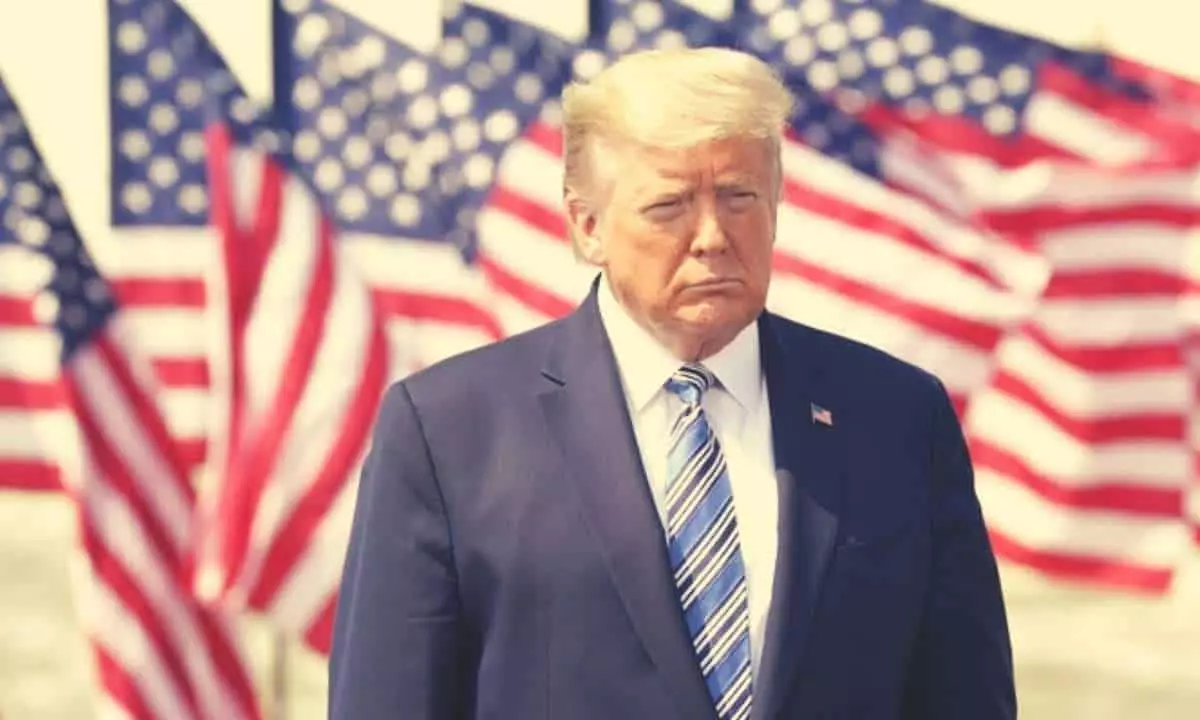In a bold and timely decision, President Donald Trump recently eliminated the IRS’s DeFi Broker Rule, overturning a costly regulatory burden that had the potential to stifle innovation within the cryptocurrency sector. Signed on April 10, this resolution represents more than just a legislative maneuver; it’s a comprehensive statement of intent that signals a new era of pro-cryptocurrency posture within the U.S. government. Those in the center-right political spectrum should welcome such a move, as it reflects a commitment to free-market principles while emphasizing the need for privacy and individual liberties—values that should resonate with any liberal that values innovation.
Regulatory Overreach: A Double-Edged Sword
Originally introduced as a means to close perceived tax loopholes, the DeFi Broker Rule threatened to misconstrue the very fabric of decentralized finance by misclassifying developers and platform creators as “brokers.” In essence, the IRS sought to impose an outdated, heavily regulated structure onto a burgeoning and rapidly evolving digital economy. This overreach not only risks suffocating the unique nature of decentralized platforms but also demonstrates a fundamental misunderstanding by legislators about how these systems work. Unlike traditional financial institutions, DeFi platforms operate without holding users’ personal information, making compliance with the IRS’s proposed reporting requirements immensely impractical. The flaws in the rule highlighted the perils of governing fast-moving technological innovation with outdated and clunky regulatory frameworks.
Threat to American Competitiveness
One of the most pressing concerns surrounding the DeFi Broker Rule was its danger to America’s standing as a global leader in fintech and blockchain innovation. With an increasing number of developers and crypto businesses considering relocation to countries with lax regulatory environments, the potential for job loss and stunted economic growth loomed large over the U.S. economy. The swift repeal of this rule prevents innovation from being pushed offshore, reinforcing the importance of a regulatory environment that welcomes creativity and adaptation. Trump’s leadership in this regard could very well turn the tide in favor of America’s tech resurgence, leading to renewed investment and entrepreneurship within the cryptocurrency landscape.
Privacy Matters: Protecting Everyday Americans
At the heart of the repeal lies an essential principle: the protection of individual privacy. Critics of the rule pointed out the risks it posed to user anonymity and privacy, which are cornerstone tenets of the cryptocurrency ethos. Representative Mike Carey (R-Ohio) echoed this sentiment by emphasizing that “The DeFi Broker Rule needlessly hindered American innovation and infringed on the privacy of everyday Americans.” It is essential to recognize that empowering individuals with the ability to control their financial information is not just a libertarian ideal but a necessary public good in today’s data-driven age. By safeguarding the privacy of U.S. citizens, Trump’s administration has positioned itself as a champion of the people, countering the growing surveillance state.
Legislative Symphony: A Bipartisan Echo
Interestingly, the swift and decisive action to repeal the DeFi Broker Rule drew support from both sides of the aisle, which underscores a growing recognition of the need for a coherent approach to cryptocurrency regulation. While some Democrats have shown interest in taxation and oversight, the bipartisan nature of this repeal indicates an emerging consensus that excessive regulations could do more harm than good. Lawmakers in general seem increasingly aware that stifling innovation in the name of regulation could ultimately harm both the economy and consumers. This miscarriage of regulatory intent should encourage a more nuanced discussion about how best to craft legislation that supports innovation while ensuring fair taxation without unnecessary complications.
Looking Ahead: A Vision for Crypto-Friendly Policies
As the landscape of cryptocurrency continues to evolve, the U.S. stands at a crossroads: either it embraces innovation and adapts to modern financial realities or limits its potential through inept regulations. The actions taken by Trump and Republican leaders signal a clear shift in favor of more flexible approaches to DeFi and broader crypto-related policies. Given the Trump administration’s promise to engage with crypto industry players and refine the regulatory framework, there is an undeniable opportunity for constructive dialogue. This proactive stance is what the crypto community needs to further establish the United States as a premier hub for blockchain technology while maintaining the delicate balance between regulatory oversight and fostering innovation.

